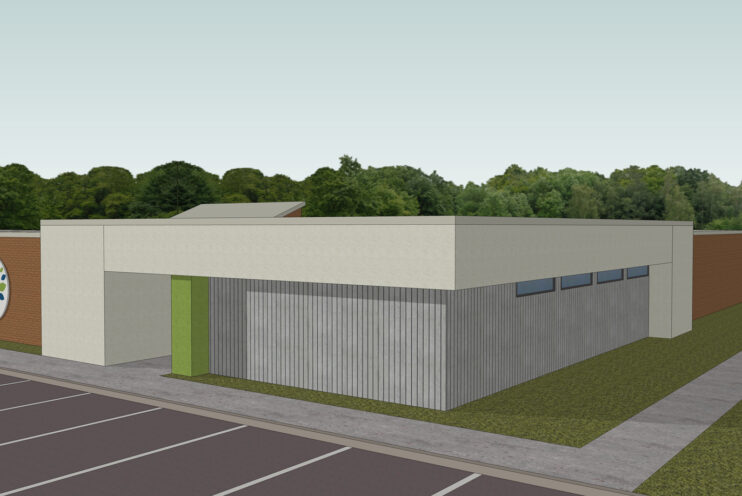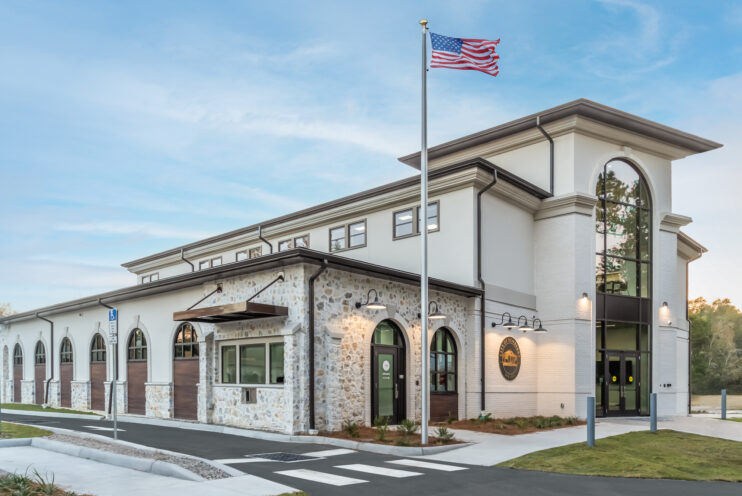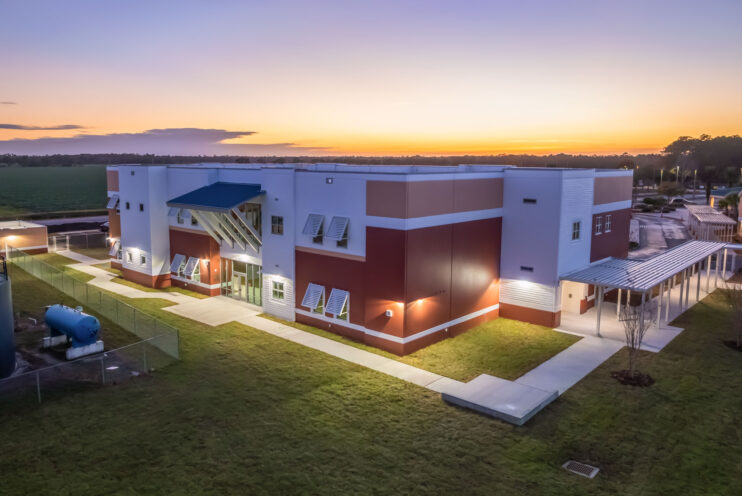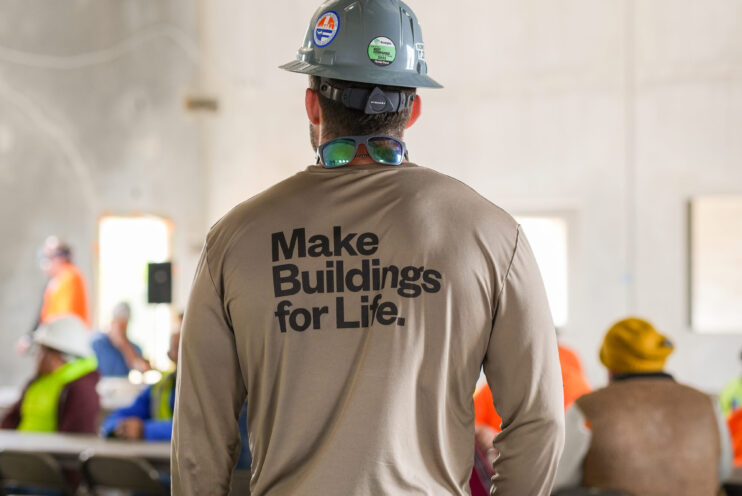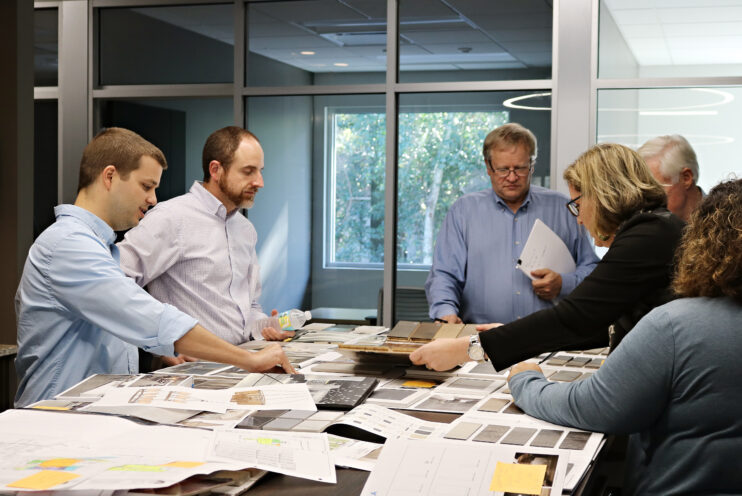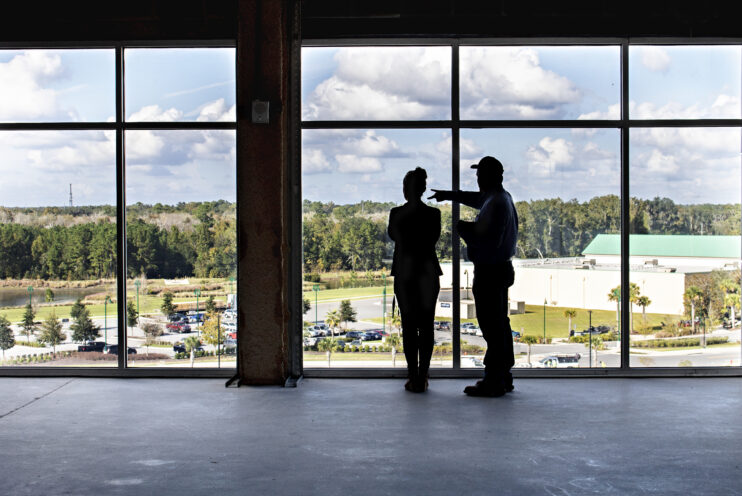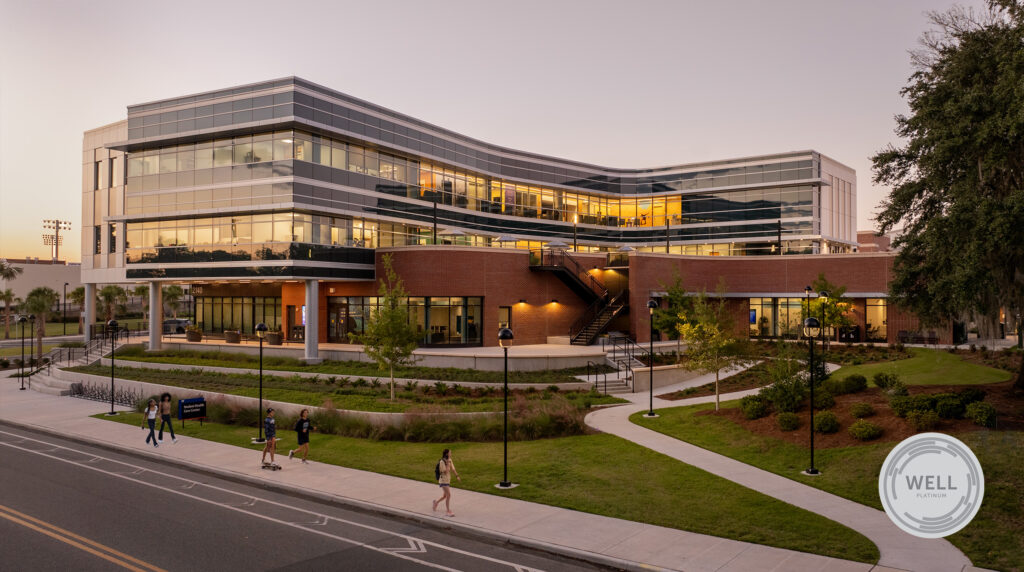The University of Florida Student Health Care Center recently earned WELL Certification Platinum, making UF the first higher education institution in the United States to have earned this distinction for a project. This also marks the University’s 100th overall Sustainable Building Certification.
The International WELL Building Institute’s WELL certification program is dedicated to creating spaces that foster the health and well-being of building occupants, ensuring a safer and healthier environment for all. The Student Health Care Center was designed during the peak of the COVID-19 pandemic to provide the best possible health and wellness services to all students on campus.
“Dedicated to optimizing health and wellness for our patients and staff, the Student Health Care Center invested in WELL to improve patient care for our students,” said Jocelyn Gravlee, MD, Director of the Student Health Care Center. “With approximately 62,000 patient visits each year, WELL elements such as clean air, purified water, and natural light enhance the well-being of everyone in our building. Additionally, focusing on the health and wellness of our staff is a crucial component in delivering high-quality health care to our patients.”
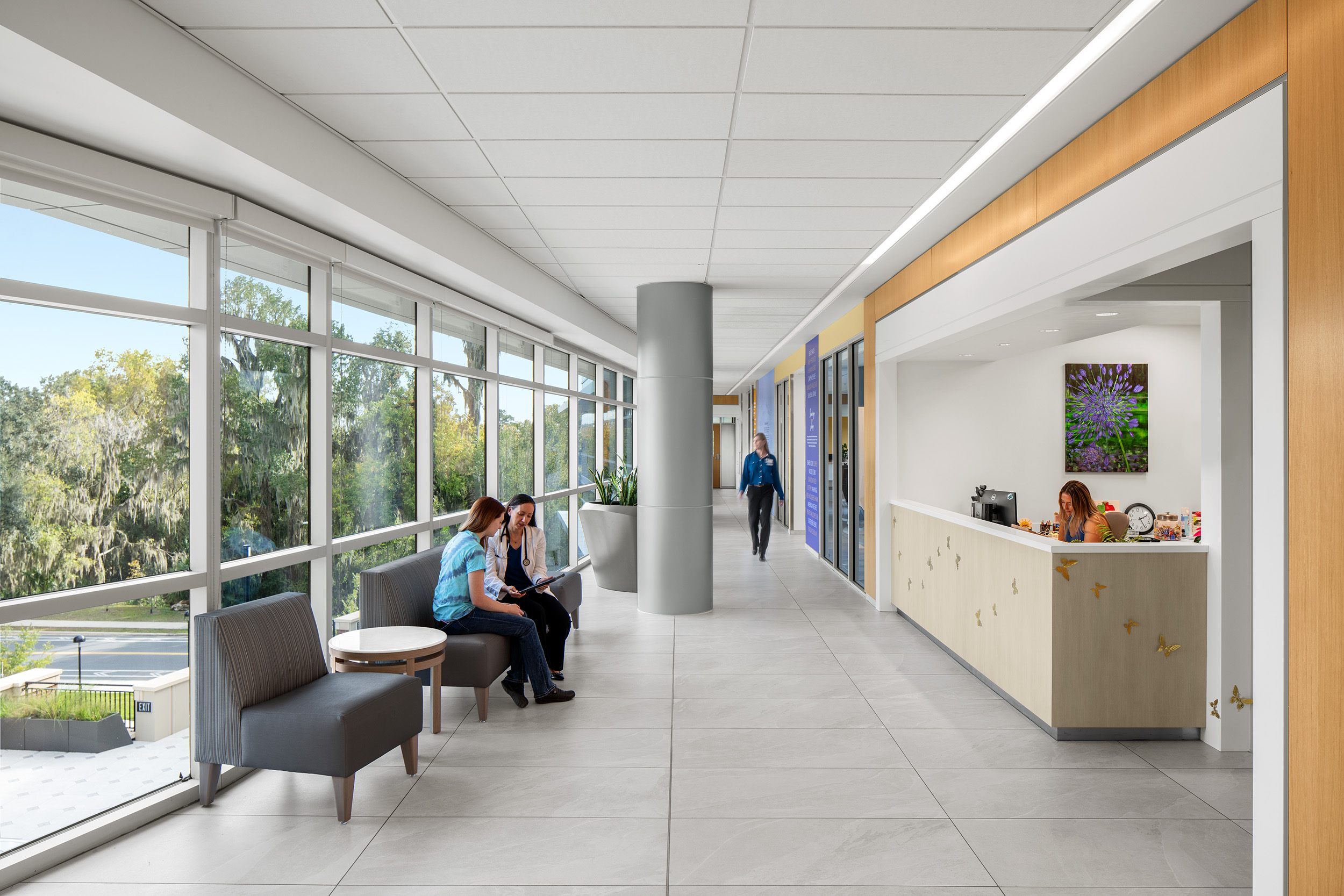
The WELL healthy building program uses evidence-based research to establish minimum quality standards for a healthy indoor environment. The program also requires on-site performance testing to ensure standards are met. Other requirements include policies encouraging healthy eating, health education, routine ergonomic assessments, and active features to incorporate movement throughout the day.
Designed by Walker Architects and CannonDesign, and constructed by Scorpio, the Student Health Care Center maximizes daylight throughout the building with abundant windows, emphasizes outdoor engagement through a rooftop garden, and incorporates sound-masking technology to minimize acoustic distractions while increasing patient privacy.
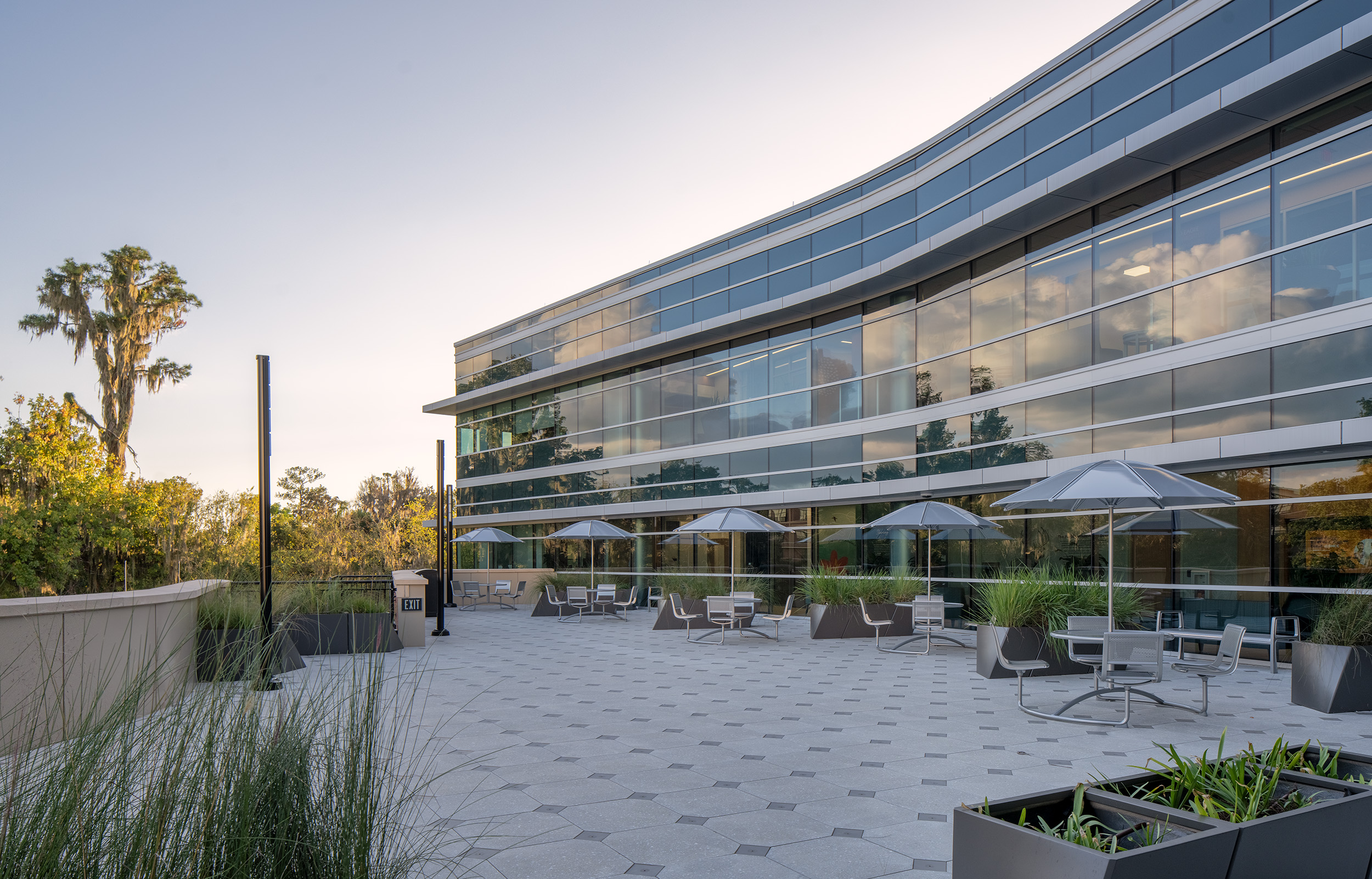
Making this building was not without its challenges, however, and supply chain delays proved difficult on schedule and budget. Multiple critical material and equipment items, including the main electrical distribution panel, two custom air handlers, the emergency generator, and the exterior curtain wall system were delayed for more than five months.
To overcome these challenges, the Scorpio project team worked closely with the University and the Design Team to create an external temporary “permanent” power panel to provide power to the building, bring in a 50-ton temporary air handler that was placed on the second-floor patio terrace, and construct temporary exterior walls on all three floors to contain conditioned air and proceed with interior finishes. Through transparency and collaboration with all stakeholders, Scorpio was able to deliver the Student Health Care Center on time and under budget.
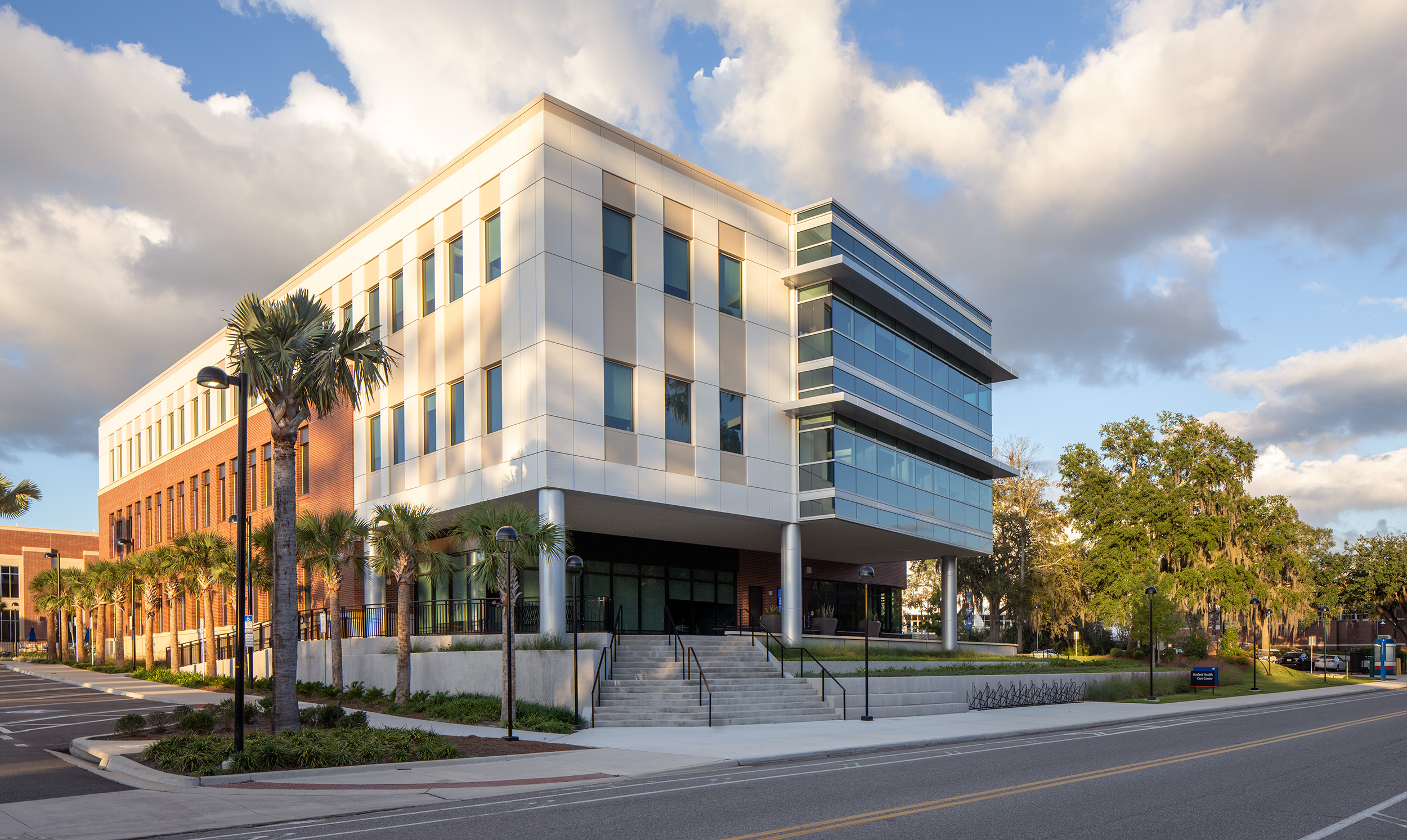
What is WELL Building Standard?
The WELL Building Standard (WELL) is the world’s leading framework for scaling health across buildings, organizations and communities. Developed over 10 years and backed by the latest scientific research, WELL outlines key building-level interventions and organizational strategies across 10 categories: Air, Water, Nourishment, Light, Movement, Thermal Comfort, Sound, Materials, Mind and Community. WELL, a performance-based and third-party verified system, supports organizations in their leadership efforts to advance human health and foster a culture of health and well-being.
What is a green building?
Green building is designing and constructing a building that prioritizes environmental responsibility, biodiversity, resource efficiency, and occupant health and well-being throughout the build’s life cycle. Green buildings participate in third-party verification programs that utilize building scientists to holistically vet the building’s environmental, economic, and social benefits.
To learn more about this project, visit the Student Health Care Center project page.
